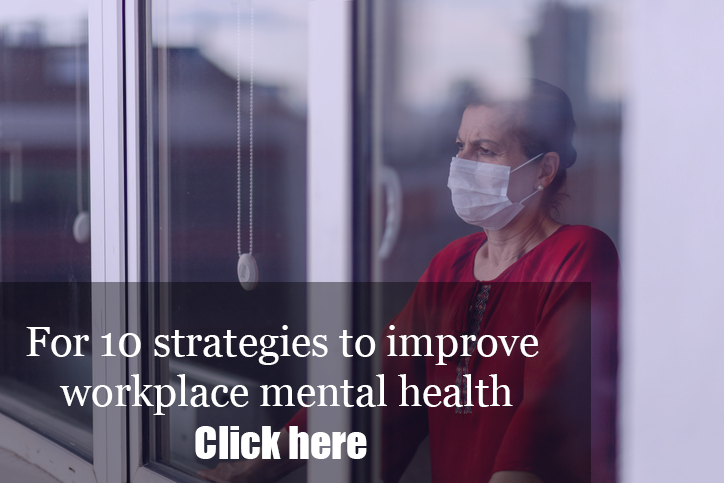I have been involved in the HR and HR technology space long enough now to see a few themes dominate the market and community discourse. For the longest time, employee engagement was primary, then we morphed that concept into something even more fuzzy called employee experience, then people analytics supported by AI was all we seemed to want to talk about. But as many of these trends have evolved over time, there are some–well, at least one–that never stopped being what we should be focused on: our relationships with the technologies that dominate our work lives and the impact of these technologies on our mental health and overall wellbeing.
For another project I have been working on, tentatively titled “This Day in HR History,” one day last week I was looking through my own archive. That entails about 12 years of my HR-themed podcast and longer than that writing and speaking about HR and HR tech, as well as being a very early and (formerly) pretty active participant in HR on social media (though I still haven’t made the leap into “HR TikTok”). This was to see what I was thinking, podcasting or writing about a full decade earlier.
Spring HR Tech is almost here. Click HERE to register.
On that day–Feb. 17, 2011–I hosted an HR Happy Hour show with author Sherry Turkle to discuss her then-recently published book, Alone Together: Why We Expect More From Technology and Less From Each Other. I recall the book, which is about how new and emerging technologies like advanced robotics, social networking, smartphones (which were still fairly new in 2011) and AI were impacting our relationships. It was all pretty new territory back then, and the richness and depth of the research in Alone Together was amazing to me then–and especially now that I have seen how well its main ideas have withstood time and changes in technology.
I was thinking about how almost-ubiquitous technology at work and in our personal lives is changing the ways we work, socialize, interact, learn and more while I was reviewing the recently published third annual AI@Work Research from Oracle. Oracle surveyed more than 12,300 people across 11 countries about the mental health impacts of the pandemic. Study authors explored how the crisis has affected different jobs, generations and geographies worldwide as well as sought to better understand how technology–specifically, workplace technology–can impact mental health and wellbeing, both positively and negatively.
 According to the report, workers of all types have been negatively affected by the pandemic, with 70% of respondents reporting more stress and anxiety at work this year than any other previous year. Additionally, 85% of people said mental health issues at work (i.e. stress, anxiety and depression) affect their home life.
According to the report, workers of all types have been negatively affected by the pandemic, with 70% of respondents reporting more stress and anxiety at work this year than any other previous year. Additionally, 85% of people said mental health issues at work (i.e. stress, anxiety and depression) affect their home life.
And, unfortunately, things don’t seem to be improving all that much, as work-from-home policies are continuing into 2021. As boundaries between personal and professional worlds have become increasingly unclear, 35% of people in the survey are working 40-plus more hours each month and 25% report being burned out from overwork.
See also: ‘Dealing with stress is no longer just a box to check’
But what is most interesting to me–and what connects the report back to Alone Together–is what the research found about people’s acceptance of and willingness to embrace technology solutions in support of their mental health. People want more from technology than always-on collaboration tools and better video conferencing–they want technology to support their mental health. And that was one of the primary ideas of the book: our increased expectations (and demands) of technology.
In the AI@Work Research, we saw that most employees actually preferred engaging with technology and AI to get support for mental health challenges compared to talking to their manager or another person. Specifically, 68% of people would prefer to talk to a robot over their manager about stress and anxiety at work, while 80% are open to having a robot as a therapist or counselor.
How can technology actually make inroads toward helping employees manage their mental health and reduce stress? Well, it isn’t just in more “direct” ways like access to virtual therapists or “smart” chatbots. In fact, 75% of employees in the Oracle research said that AI has helped their mental health at work. Respondents reported that AI has provided the information they needed to do their job more effectively (31%), automated tasks and decreased workload to prevent burnout (27%) and reduced stress by helping them prioritize tasks (27%). Finally, 63% of respondents said AI technology increases employee productivity, while 54% reported it improves job satisfaction and 52% said it improves overall wellbeing.
The opportunity for HR and business leaders is clear: Smart, relevant and impactful applications of modern technologies like AI can play a significant role in improving overall and individual mental health in the workplace. The time is now to begin a deeper conversation about technology in the workplace. Actually, the time was probably 10 years ago to start deeply examining our relationships and expectations with technology in the workplace.
As we continue to develop the program design and content development for the 2021 HR Technology Conference & Exposition in the fall, this idea will be top of mind for me, and something that I am confident will be considered and reflected upon by our great speakers and industry thought leaders. I can already see aspects of mental health and wellbeing and technology’s relationship to these in my early discussions for HR Tech.
I hope that you consider how the tools you select and implement actually impact people’s work lives, mental health and wellbeing, as what we have learned from these last 10 years is that we are likely to be having this same conversation 10 years from now.



